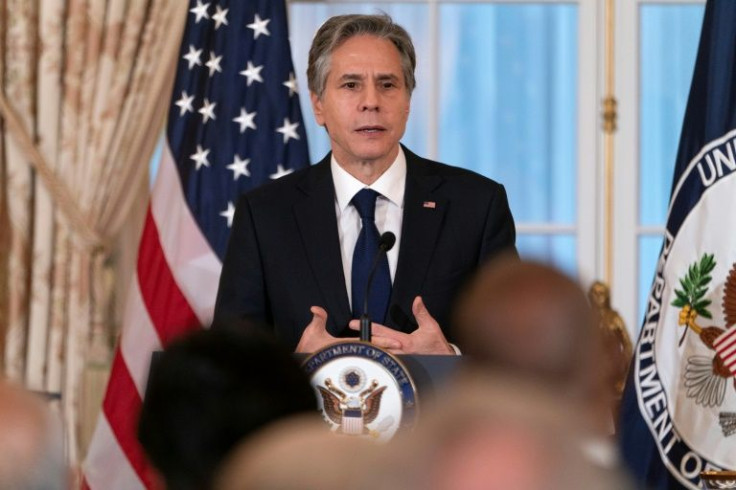China Warns Of A Malicious Confrontation With The US

Last week, the Chinese Ambassador to the US Qin Gang added fuel to the cold war between the world's two largest economies. It warned of a "malicious confrontation" between Beijing and Washington, which would lead to dangerous consequences.
The ambassador's warning was made during a global summit following a speech by U.S. Secretary of State Antony Blinken, which provided Washington's “context” for building a "rules-based international order."
"To build that future, we must defend and reform the rules-based international order – the system of laws, agreements, principles, and institutions that the world came together to build after two world wars to manage relations between states, to prevent conflict, to uphold the rights of all people," Blinken said.
But Beijing isn't happy with Washington's new context of international relations, which it sees as part of Washington's geopolitical competition against China.
"Blinken's speech echoes one of the main focuses of Biden's Asia trip — to promote the Indo-Pacific Economic Framework (IPEF), which some described as the economic version of NATO and an important tool for the U.S. to conduct geo-economic competition against China," said a Global Times editorial.
The global summit where Washington got the chance to state its vision for the future of international relations took place against the new landscape that emerged during the Russia-Ukraine war. It's a world divided between America and its allies on one side and Russia and China on the other, with each side pursuing its own ideological, political and military agenda.
Relations between the U.S. and China remain tense on several fronts. First, the American tariffs on Chinese products run against the spirit of globalization. And they are seen as adding fuel to the 40-year high U.S. inflation.
Then there are China's ambitions to make the South China Sea its own, which worries Washington and its allies. They want the vast waterway as an open sea.
And there's China's determination to reunite with Taiwan. It worries Washington and its allies, especially Japan, which once occupied Taiwan.
That's why Washington remains focused on Asia, even as the Russia-Ukraine war rages on.
"Even as President Putin's war continues, we will remain focused on the most serious long-term challenge to the international order – and that's posed by the People's Republic of China," stated Blinken. "China is the only country with both the intent to reshape the international order and, increasingly, the economic, diplomatic, military and technological power to do it. Beijing's vision would move us away from the universal values that have sustained so much of the world's progress over the past 75 years."
Washington's international policy agenda worries Paul Bracken, professor emeritus of management at the Yale School of Management.
"Washington has gotten sloppy in thinking about serious approaches to crises in recent years," Bracken said. "Afghanistan and Ukraine show this. The CIA wildly misestimated enemy capabilities in both instances. A Chinese miscalculation now could lead to the greatest nuclear crisis since the height of the Cold War."
© Copyright IBTimes 2024. All rights reserved.






















